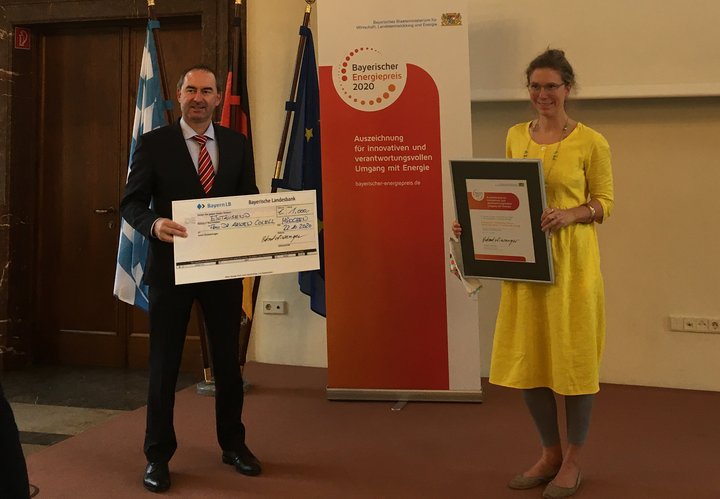In her dissertation, Arwen Colell, PhD candidate the Hochschule für Politik in Munich, compares energy supply projects in Germany, Denmark and Scotland that are being redesigned and operated permanently in small towns and communities through citizens' initiatives. While the discussion about the role of community energy projects in the energy transition has so far often focused on material resources such as financial investments, Arwen Colell concentrated on intangible and social factors such as shared values, convictions, knowledge and shared responsibility that make the local energy transition successful.
Social innovation as a success factor
The success of the conversion of the energy supply in community and citizen projects depends crucially on whether it is possible to establish joint sponsorship for the project. Citizens and municipalities are changing their role as an actor: from energy consumers to actively responsible persons, to their own managers of their energy supply. Power relations are shifting, for example, the projects could appear completely different to civil servants or technology companies. Common values, knowledge, but also shared symbols contribute to the sustainable restructuring of the energy system at the local level. This social innovation has proven to be crucial for this in the five projects examined in three countries.
Example on the Danish island of Samsø
On the Danish island of Samsø, the people know that you have to be there for each other when you live out in the middle of the sea. Skafning, a Danish word that can only be found in the local dialect of the island, means neighborly help and a sense of responsibility. When the entire energy supply was to be converted to 100% renewables within just ten years, a common basis had to be found quickly in order to make infrastructure decisions. As part of the joint project work, the energy transition has now also become part of skafning. This shows that the energy system in these communities is not simply a technical expert topic, but rather a firmly integrated part of the community.
Link technical infrastructure with the values of the community
“Social ownership is crucial for the success of the energy transition,” explains Colell and emphasizes: “This is what distinguishes citizens' own projects, from the Hebrides to Oldenburg, from the Black Forest to the Kattegat: the ability to link technical infrastructure with the values of the community."
Contact:
Dr. Arwen Colell
Mercator Research Institute on Global Commons and Climate Change
EUREF Campus 19 | 10829 Berlin
colell@mcc-berlin.net
+49 (0)30 338 5537 0

